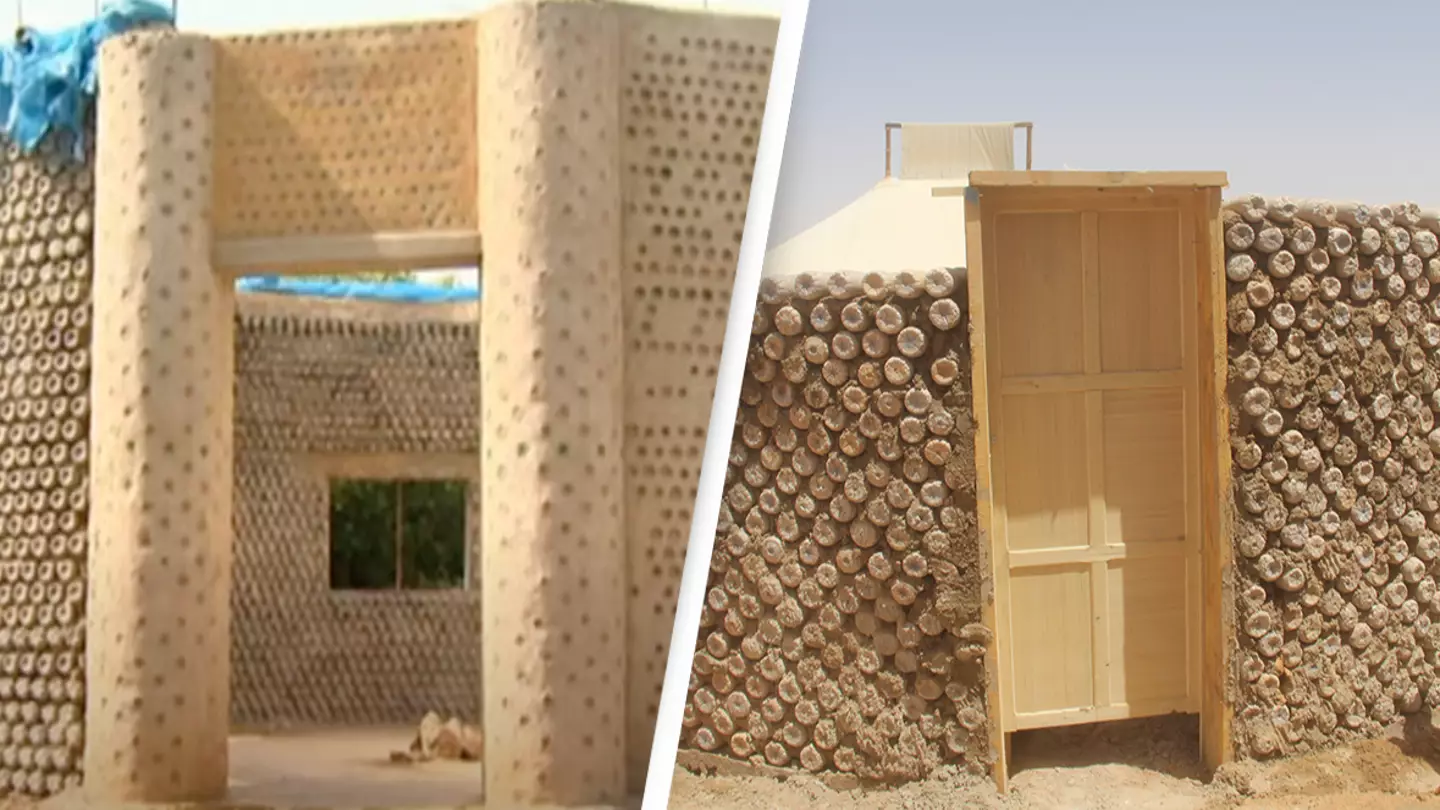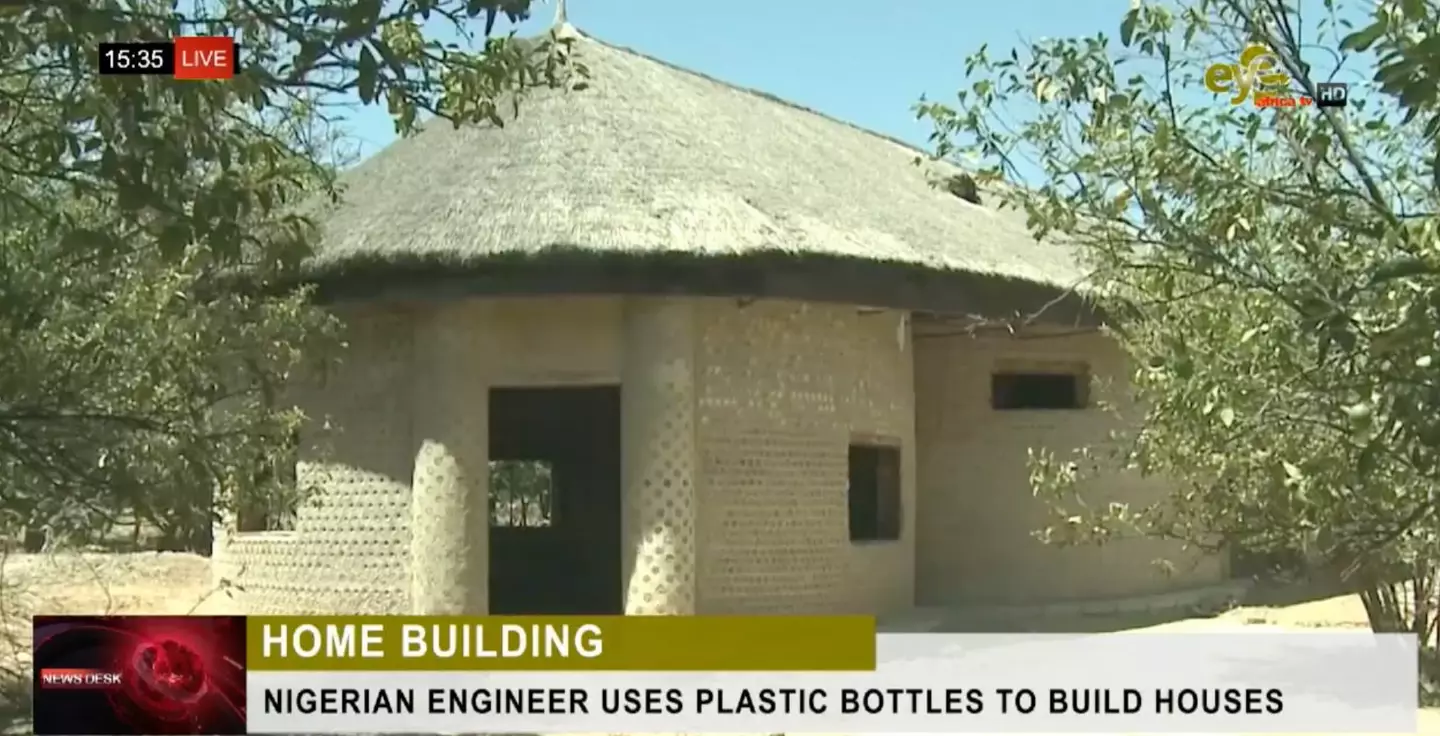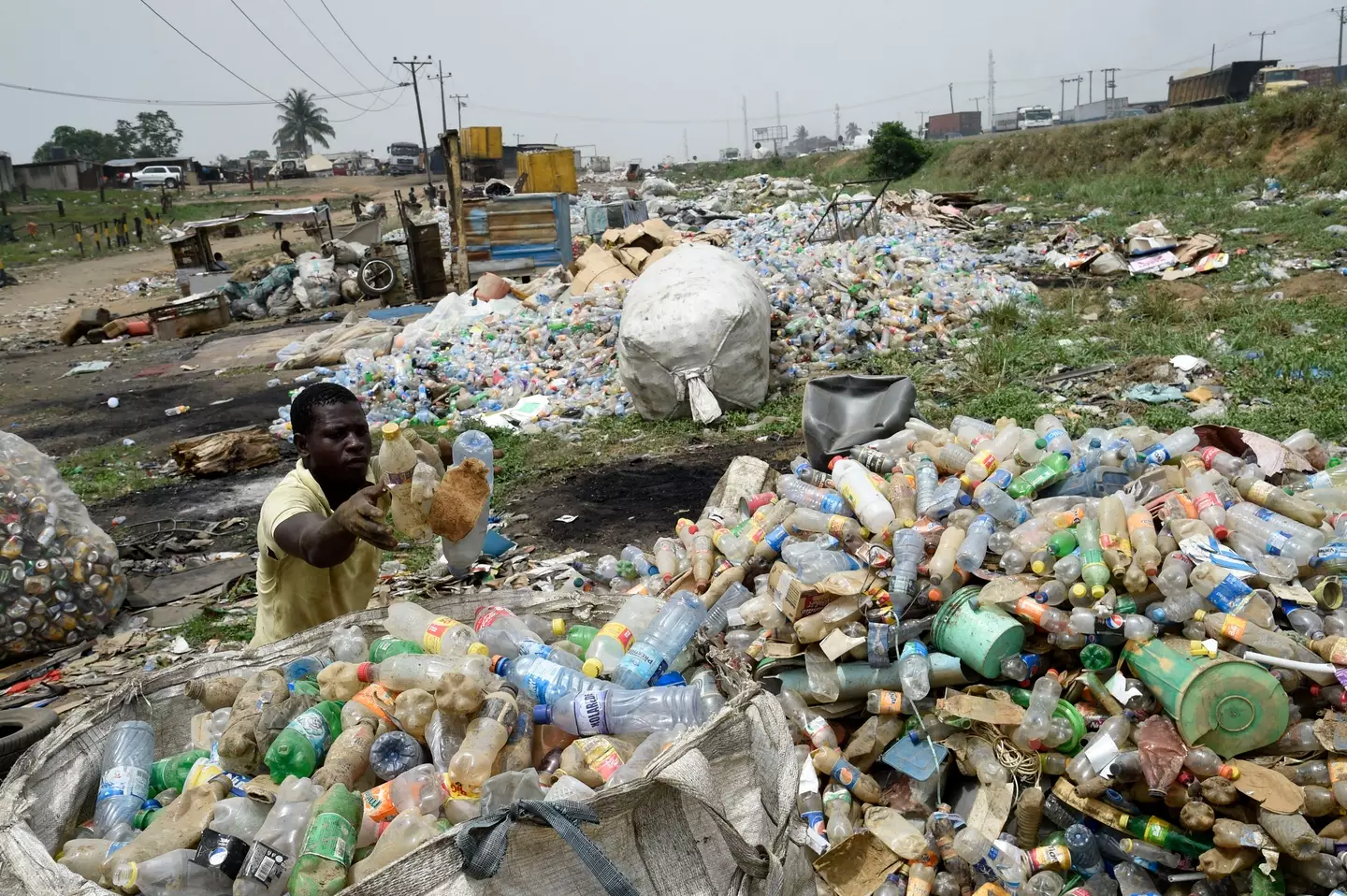
Nigerians are using an innovative way build homes that saves the environment, as well as money.
Plastic bottles are undeniably one of the biggest things to have impacted our environment, with eight million tons of them said to be polluting our oceans each year.
Nigeria alone is said to 2.5 million tons of plastic waste yearly, largely down to the fact that many homes don't have drinkable water.
Advert
But there's a eco-friendly way the bottles can be reused for something other than to be drank from - to build homes.
And they create extremely sturdy homes too, with the properties said to be both earthquake and bulletproof.
There were first reports of the sustainable buildings in 2011, with more being build in the years that have followed.
It's believed around 14,000 bottles are needed to build each home but, despite the thousands of pieces of plastic needed, it still works out to be around 67 percent cheaper compared to using more traditional building materials.

When building the home, plastic bottles are filled with sand and then stacked on top of one another and bound together with string.
Filling them with sand reportedly makes them incredibly strong, with come people claiming that the homes are durable that they can last 300 years.
Yahaya Ahmed of Nigeria’s Development Association for Renewable Energies told the BBC back in 2011: "Compacted sand inside a bottle is nearly 20 times stronger than bricks.
"We are even intending to build a three-storey building."
To fill the gaps and make it a complete wall, builders then use mud.
And not only is it creating cheaper and sustainable housing while taking thousands of plastic bottles off our streets and out of the ocean, it's creating jobs for people as well - for young men in particular.
"I don't want to be a beggar, I want to work and get paid - that is why I am doing this job," then-15-year-old Shehu Usman told the news outlet.
He also shared his hopes of building his own home with plastic bottles.

Getting plastic out of our oceans is a huge priority for many at the moment as there are concerns that microplastics could create something that's been subbed as 'plastic rainfall'.
A group of researchers from Waseda University in Japan recently conducted an investigation into the path of airborne microplastics (AMPs) and collected cloud water from the summit of Mount Fuji.
Upon analyzing the water, there were nine different types of polymers and one type of rubber in the airborne microplastic particles.
This result means microplastics 'may have become an essential component of clouds' and the team fears this could mean microplastics are contaminating 'nearly everything we eat and drink via 'plastic rainfall''.